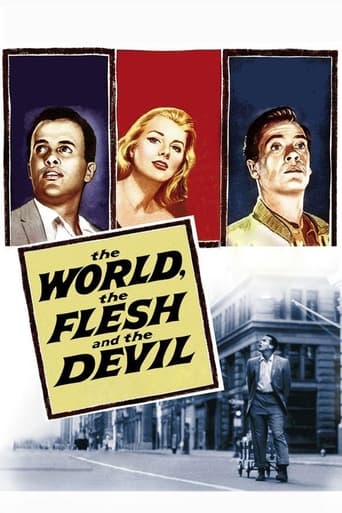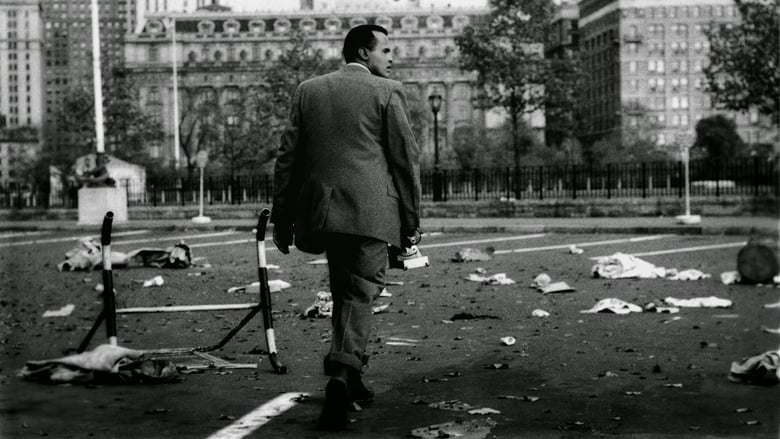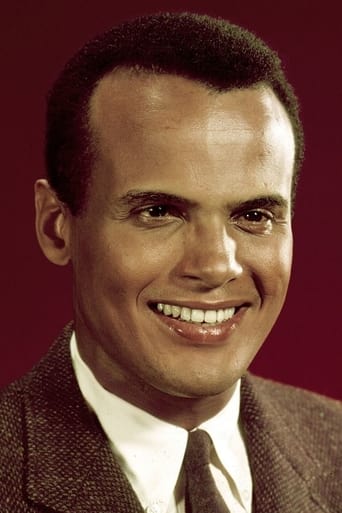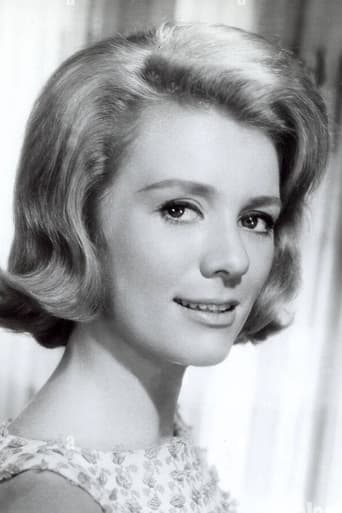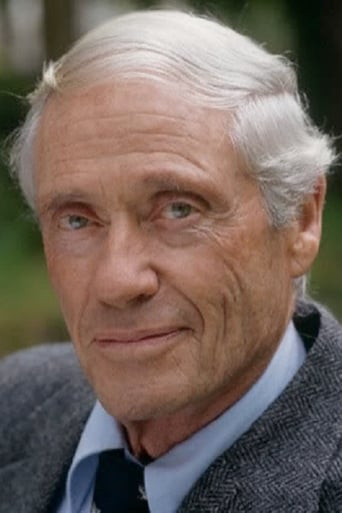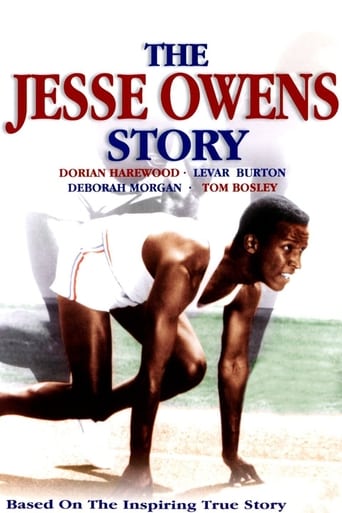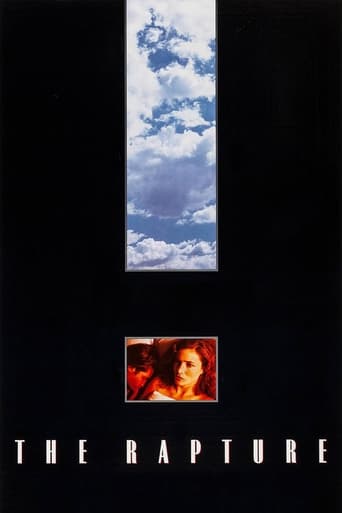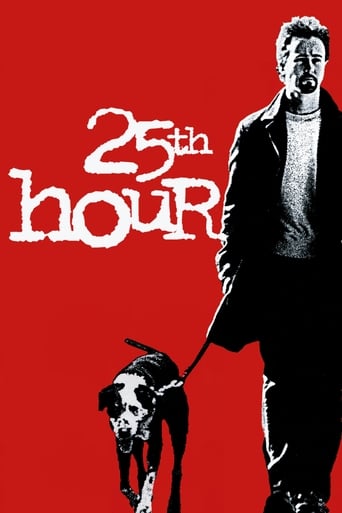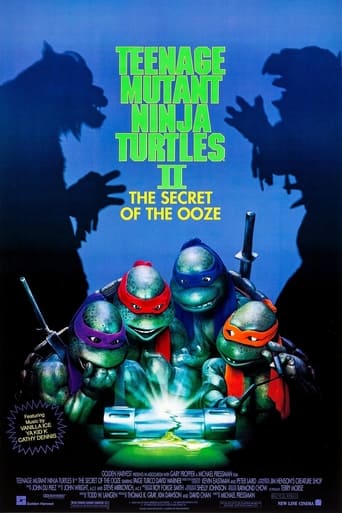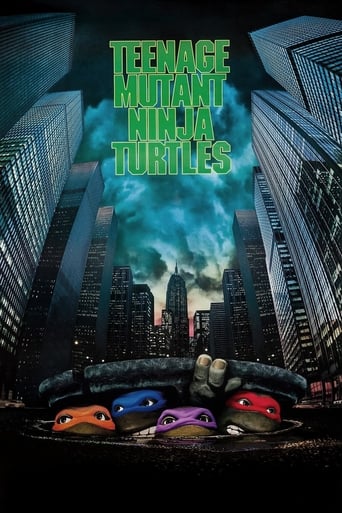The World, the Flesh and the Devil (1959)
Ralph Burton is a miner who is trapped for several days as a result of a cave-in. When he finally manages to dig himself out, he realizes that all of mankind seems to have been destroyed in a nuclear holocaust. He travels to New York City only to find it deserted. Making a life for himself there, he is flabbergasted to eventually find Sarah Crandall, who also managed to survive. Together, they form a close friendship until the arrival of Benson Thacker who has managed to pilot his small boat into the city's harbor. At this point, tensions rise between the three, particularly between Thacker, who is white, and Burton, who is black.
Watch Trailer
Cast


Similar titles
Reviews
So much average
Although it has its amusing moments, in eneral the plot does not convince.
Let me be very fair here, this is not the best movie in my opinion. But, this movie is fun, it has purpose and is very enjoyable to watch.
It's a good bad... and worth a popcorn matinée. While it's easy to lament what could have been...
This movie is not just an ugly movie. It is a sad evidence of the general ignorance about nuclear weapons. I wonder how little US people knows about the aftermath of Hiroshima and Nagasaki 1945 bombings. What did they know about 1954 Bikini "Operation Castle", thermonuclear bombs test.Anyway the screenplay is brutally absurd. Starting from the newspapers the man finds in the mine's bureau. The aftermath of the atomic war is: people vanished and streets a little dirtier than usual.How could filmmakers imagine an important target like New York hit by intercontinental missiles which make people disappear but leave all buildings intact and all those brand new cars stuck in the streets: where have the people gone? Where are the corpses?Tell a story of abduction by the aliens: it's more believable than this.2/10
This is not a dull movie but when you really examine the plot it makes little sense.What happened to all the people killed by radiation? They wouldn't just vanish. Evacuating everyone from a huge city like New York seems impractical. Where would they all travel to?Why would a guy who's got experience with mines and power supplies not even think to try the tap water in an apartment vs. lugging water upstairs? People would automatically at least turn a spigot once.Why are so many guns tossed away in temporary fits of disgust? In a future like that, people would horde guns for self defense against the dark forces. Or at least hunting, if any animals survived.Last but not least, why would that same (black) guy, in proximity to an extremely shapely white woman, make race such an issue with almost nobody else around to care? Good grief, man, just go for it!I found this film too tunnel-visioned to be realistic, given the circumstances of its setting. It forced a narrow, racial concern into a world where it no longer applied. But it's well made enough to be worth watching. The ambiguous ending is also interesting, though its practical implications are risqué.
It resembles closely the pilot episode of "The Twilight Zone," called "Where Is Everybody?", only this time it's not a dream. Harry Belafonte is trapped in a caved-in mine and survives an attack of radioactive something or other, the kind that kills everybody without leaving any untidy corpses around.Belafonte digs his way out, discovers what happened, and makes his way to Manhattan, where he finds nothing but emptiness. He fixes up a block of New York with a generator and lights but is despondent and lonely -- until blond, sexy Inger Stevens shows up. They're both delighted. He fixes her a flat in the same building as his and they get to know one another, well enough so that Belfonte, a black man, confesses that he loves her but, what with his race, they live in two different worlds. She says nothing about love but, just as he's good with things, she's practical about relationships. "We're the only two people left alive." Not quite true. Mel Ferrer stumbles into their little nest. They nurse him back to health and it complicates the tentative arrangement. He's not a bad guy, but as Stevens describes it, Belafonte can't make up his mind about what he wants, while Ferrer knows exactly what he wants and will stop at almost nothing to get it.It's all believable enough. There are three people left alive on earth. The woman worries about which man she should marry, and the two men plan to murder each other.Belafonte, although confused and embittered, is clearly the more noble of the two. He puts an end to the shooting match by throwing away his rifle and announcing that he's leaving for parts unknown. Stevens talks him out of it and her pale white hand takes his strong dark hand. Then they hurry to catch up with Ferrer and he takes Stevens' other hand.What -- asks the discerning viewer -- is going to happen next? Don't ask. Why SHOULD you ask? The writers certainly didn't. Maybe polyandry.It's an interesting movie until the appearance of Mel Ferrer, who is a nuisance. Inger Stevens is visibly horny and at one point, when Ferrer forces her into a dark niche in the row of skyscrapers, she says, "Do you want to kiss me? Make love to me? Go ahead." Until then we've seen nothing but her growing affection for Belafonte.It must have been a shocker in 1959. The South still had "white" and "colored" drinking fountains and johns. If you wanted a hamburger you didn't sit at the counter; you waited at the take-out window. This was considered normal.There are some effective scenes, such as Belafonte first wandering the deserted streets of the city and shouting up at the stone cliffs that hover over him, the thousand windows like dead eyes, and Belafonte screaming, "I know you're there! I can feel you watching me!" And again, when Stevens gaily asks Belafonte to cut her wavy blond hair. He doesn't look forward to the intimacy of the act and begins cutting carelessly, increasingly angry, blowing the fluffs of severed golden hair from the back of his hand. She finally tells him he's hurting her and he throws the scissors down and walks off.But the musical score is by Miklos Rozsa and practically duplicates all his other scores. His work was dramatic but dull. The performances are alright. Belafonte is handsome and convincing, and Ferrer is an effective catalyst. Inger Stevens does fine in the role of a woman whose part is full of blanks. It's the script that's the problem. I understood what Belafonte was about, and I had a general idea of what Ferrer was up to, but Stevens was impossible to figure out, aside from her terrifying thought that she might never be married. (Is that from the 1950s or what?) The climax is a cop out. Nothing is resolved. All such endings -- in which the writers have entirely run out of ideas except "let's not offend anyone who might buy a ticket to the movie" -- should be abjured, banished from the screen, sent to the lesser moons of Jupiter.
The World, the Flesh and the Devil (1959) is a very good film if only for its thought-provoking plot. Regardless of which side you are on regarding inter-racial marriage and dating, this movie will move you to consider that people are people, regardless of their color and people need people.The other interesting thing about this movie is that Ralph Burton (Bellafonte) is the best man in the film and Ben Thacker (Ferrer) is the evil, self-centered one. In 1959, it must have required very forward thinking to portray the black man as the good and the white man as the evil one. Further, Sarah Crandall (Stevens) is obviously in love with Ralph Burton and wants him to claim her. He loves her, too, but is imprisoned by his prior socialization as a black man and will not allow himself to have the woman he loves.The ending of this movie is a major disappointment. All three are shown walking down a deserted street holding hands with Crandall in the middle. Does this mean that the men are going to share her? Clearly, in this case, one man is going to get the girl and the other one isn't. If love has anything to do with it, Burton should rightly have the woman. But, Ben Thacker's self-serving interests lead him to attempt killing Burton. Burton decides to defend himself and accidentally reads a sculpture with a reference from the Bible about turning your swords to plowshares and is deeply affected. He throws down his weapon and naively places himself at the mercy of Thacker who badly wants to murder him but can't because he would lose his self-respect for shooting an innocent man who won't fight back.This movie does real damage to Harry Bellafonte's image as a man and as an actor. Twice in the movie, he throws down his weapon at times when he needs it most. A beautiful woman is in love with him and stops just short of throwing herself at him but he turns his back and walks out with a sense of martyrdom and literally sends the woman to the other man. There is a time for fighting and a time for making love and Burton fails to rise to either occasion.However, to Burton's credit, he is obviously the most intelligent and capable man. He develops a reputation among the others for being able to fix anything and uses a shortwave radio to contact other apocalypse survivors in far away locales. Burton also saved Thacker's life and was instrumental in nursing him back to health. Interestingly, the man whose life he saved was so willing to take his. My favorite quote of the movie was when Sarah Crandall told Ralph Burton "you're a good and decent man...what else is there to know?" That quote must have come easy to Stevens because she was truly color blind and later married a black man in reality. In summary, this was a very good movie but somewhat far-fetched for its time. New York City was reduced to only three people...hard to believe.My imagination runs toward thinking what comes next for these three. Sooner or later, someone will get the woman because she is definitely ready for "marriage" as she says. In fact, she (Crandall) was the first to raise sexual issues in this film. See it for yourself and tell me what you think.

